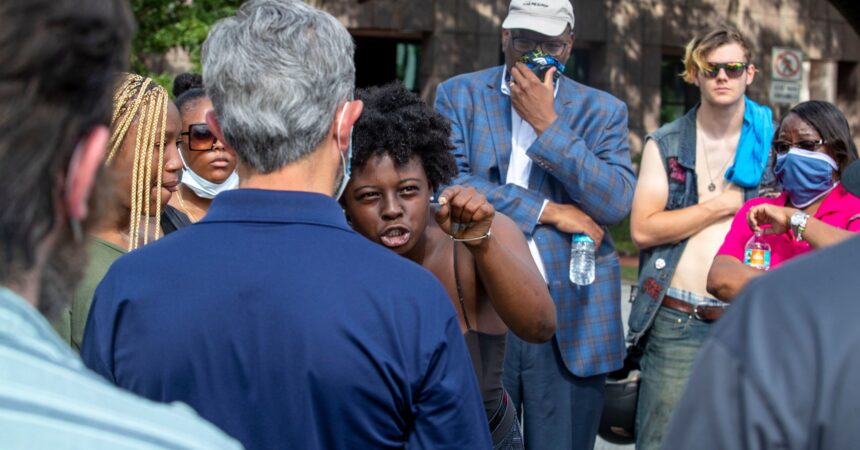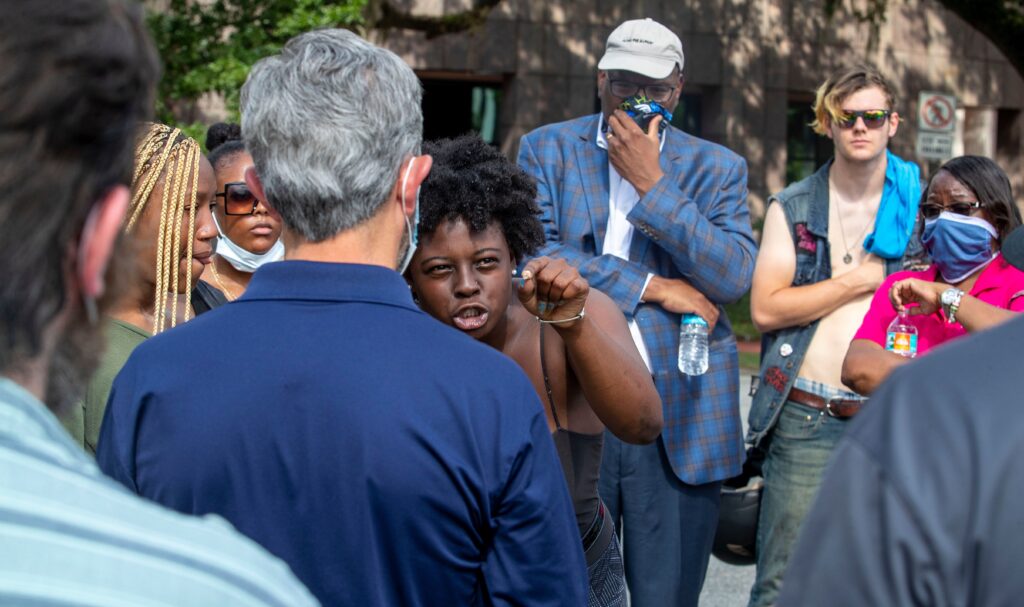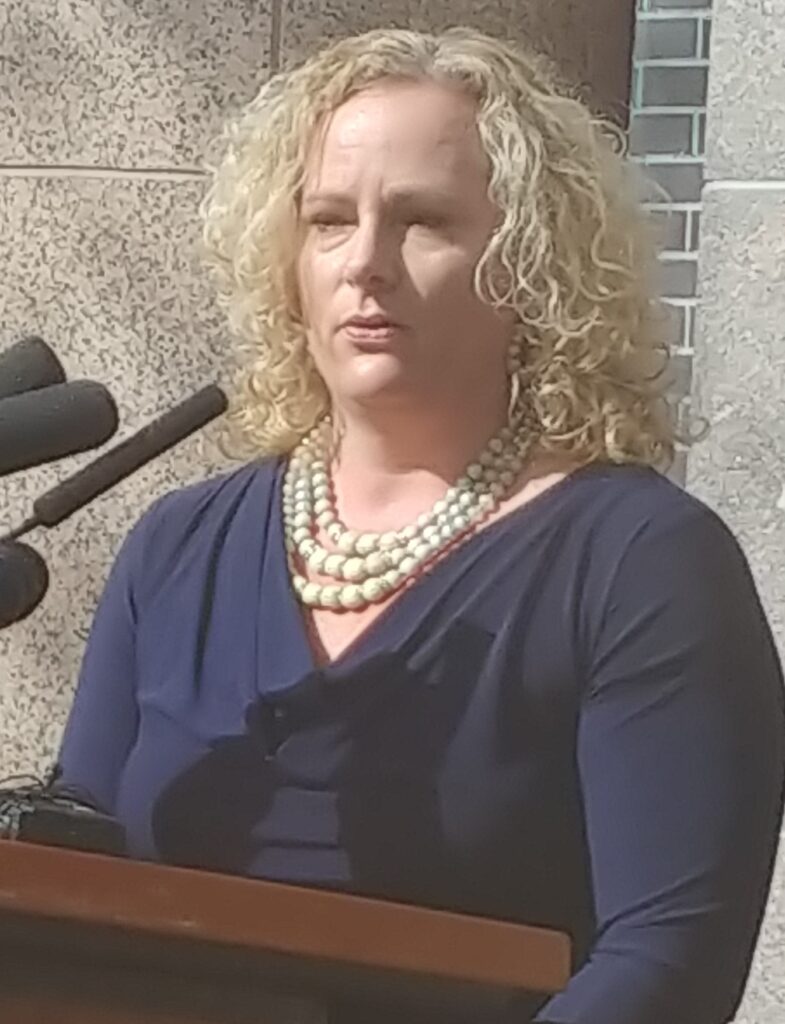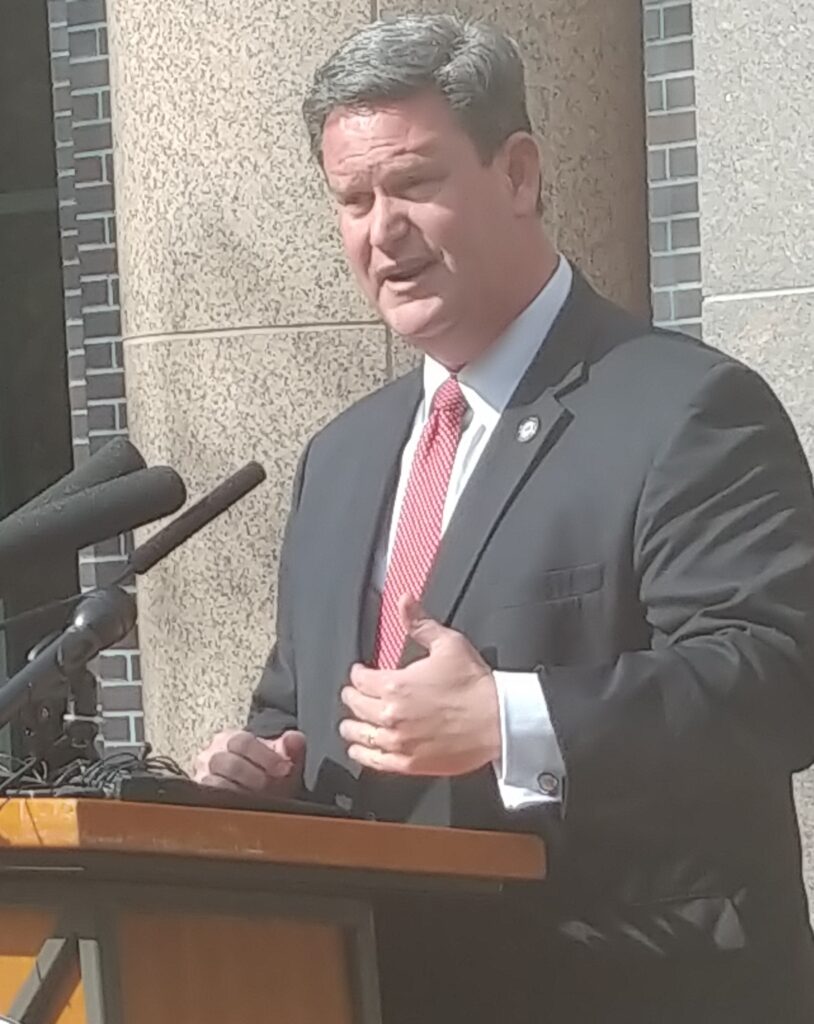
‘Anti protest’ bill raises concern

Mega Ace photo
Photos by St. Clair Murraine
By St. Clair Murraine
Outlook staff writer
One of the most dubious eras of America’s history had a lot to do with the protesting that followed the death of George Floyd in police custody last May, said the vice president of the National Action Network’s local chapter.
Don Tolliver concluded that the passage of HB1 by the Florida House last Friday is a throwback to the Jim Crow era. The bill, which is officially known as the “Combating Violence, Disorder and Looting and Law Enforcement Protection Act,” passed 76-39 on a party line vote.
Gov. Ron DeSantis first introduced the idea for the bill last summer in the height of nationwide protest. Protesters, often a mix of Black and White college students, made their voices heard around the city.
They even took the protest to the governor’s mansion.
“They have grown up seeing the injustices that have happened throughout the years,” Tolliver said, explaining why the protester persisted. “They don’t want to be a part of the injustices that have been. They want to stand up for change versus what (the government) did in the 1950’s and 60’s.”
The bill, if approved by the Senate and signed by DeSantis, would create new laws with harsh penalties. For instance, it would become a felony to destroy any monument in the state.
Passage by the House sparked several protests around the state, with one in Tallahassee last Saturday. While supporters say the measure would protect law enforcement officers and maintain order during protests, there has been plenty of opposition.
Tallahassee Mayor John Dailey said the bill goes too far and raises concern about infringing on First Amendment rights.
“This bill is attempting to solve a problem that we do not necessarily have,” Dailey said at a press conference before the bill was passed. “It will have the effect, intended or not, of stifling constitutionally protected speech. This bill doesn’t just increase the penalties of those who commit violence during a protest; it allows someone to be arrested for simply participating in a protest where violence happens to occur.”
Trish Brown, a recent candidate for a seat on the city commission and a member of Tallahassee Community Action Committee, said there is some angst among people who fight for civil rights.
“It is hurtful and traumatic when our legislators turn their backs on the People,” wrote Brown, who participated in several protests last summer, in a statement. “Our Voices are not being heard.
“It frightens me knowing that our legislators do not all see eye to eye on how disgraceful, threatening (and) how Blacks will be marginally impacted. This is an insult to our Constitutional right to freedom of speech.”
In her statement, she suggested that individuals and organization send letters to state senator to voice the opinion on the bill.
Standing in front of City Hall, just a block away from where student sit-ins and a bus boycott over civil rights took place in the 1960’s, Dailey said the bill tramples home rule authority.
“I think it’s important as the mayor of Tallahassee that I make sure that not only my voice,” Dailey said, “but the voices of the citizens of Tallahassee are heard.
“As mayor, I take seriously my responsibility to keep all of our citizens safe. We have zero tolerance for violence and going to enforce our laws to ensure the health, safety and welfare of all of our residents.”
Carrie Boyd, Florida Policy Director for the Southern Poverty Law Center, said bill is “bad policy,” during her remarks at the press conference with Dailey.
“We already have all of the tools we need to combat violence in the state and in our community; all communities across Florida,” she said, adding that the measure is a “dangerous bill that is not good for Tallahassee or any of Florida.”









